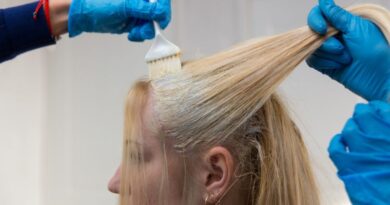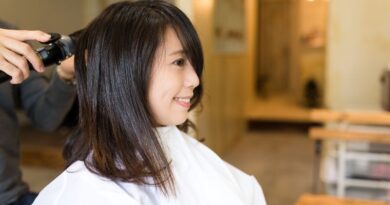Dreams, those enigmatic landscapes where our subconscious thoughts intertwine with symbolism, often leave us pondering their meanings. In this exploration, we focus on a specific and intriguing nocturnal narrative: What does it mean to dream about cutting your hair. As we unravel the threads of dream interpretation, we delve into the rich history and cultural significance of hair symbolism. From Freudian perspectives to real-life manifestations, we embark on a journey to decode the profound meanings behind dreams of cutting one’s hair.
Join us in deciphering the intricacies of this symbolic act, understanding its psychological underpinnings, and discovering the potential for self-reflection and personal growth hidden within the folds of our dreams. Let’s unravel the mystery together and explore the deeper layers of our subconscious in the quest to decode the meaning behind dreams of cutting your hair.
The Symbolism of Hair in Dreams
A. Historical beliefs and cultural significance
Throughout history, hair has held cultural and symbolic significance, representing everything from societal status to personal identity.
B. Freudian perspective on hair in dreams
Sigmund Freud, the father of psychoanalysis, believed that hair in dreams symbolizes sexual potency and is often linked to our deepest desires.
C. Common interpretations of hair-related dreams
From loss and vulnerability to strength and individuality, the interpretation of hair-related dreams varies widely.
Analyzing the Act of Cutting Hair in Dreams

A. The act of cutting as a symbolic gesture
In the dream realm, cutting hair can signify a desire for change or a need to sever ties with the past.
B. Personal connections and emotional ties
Dreams of cutting one’s hair often reflect the emotional significance we attach to our appearance and how it may impact our relationships.
C. Exploration of different cutting scenarios in dreams
The context of the hair-cutting scenario, whether it’s a self-cut or someone else wielding the scissors, adds layers to the dream’s interpretation.
Read Also: 7 Chic Short Cuts for Women Over 50
Psychological Perspectives
A. Stress and anxiety reflections in dreams
Hair-cutting dreams may manifest during times of stress, serving as a subconscious outlet for the anxiety we experience in waking life.
B. The impact of societal beauty standards
Societal expectations regarding beauty standards can influence the way we perceive ourselves, potentially manifesting in dreams about altering our appearance.
C. Self-perception and identity in dream symbolism
The act of cutting hair can be a symbolic representation of our evolving self-perception and the quest for identity.
Common Variations of Hair-Cutting Dreams
A. Cutting someone else’s hair in dreams
Dreams involving cutting someone else’s hair may reflect a desire for control or influence in a relationship.
B. Different types of haircuts and their interpretations
The specific type of haircut in a dream can offer nuanced insights into the dreamer’s emotions and aspirations.
C. Repeated dreams of cutting hair
Recurring dreams of cutting hair may signal unresolved issues or a persistent need for change in one’s life.
The Influence of Gender in Hair-Cutting Dreams

A. Varied interpretations for men and women
Gender can play a role in how hair-cutting dreams are interpreted, with societal expectations shaping the meanings for both men and women.
B. Societal expectations and gender norms
Expectations surrounding hair and appearance may contribute to the symbolism of cutting hair in dreams, reflecting societal norms and pressures.
C. The role of personal experiences in shaping dreams
Individual experiences related to gender identity and societal expectations can significantly impact the content and interpretation of hair-cutting dreams.
Real-Life Events and Dream Manifestations
A. Personal experiences reflecting in dreams
Dreams often draw from real-life events, with the act of cutting hair serving as a metaphor for processing and coping with these experiences.
B. Traumatic events and their impact on dream content
Individuals who have experienced trauma may find that their dreams, including those involving cutting hair, serve as a subconscious means of processing and healing.
C. Dream analysis as a tool for self-reflection
Engaging in dream analysis allows individuals to explore the connections between their waking experiences and the symbolism present in hair-cutting dreams.
Techniques for Analyzing Hair-Cutting Dreams

A. Keeping a dream journal
Maintaining a dream journal provides a valuable record of recurring themes and patterns, aiding in the interpretation of hair-cutting dreams over time.
B. Seeking professional guidance
In some cases, consulting with a dream analyst or therapist can offer additional insights and guidance in understanding the deeper meanings behind hair-cutting dreams.
C. Online resources and dream communities
The internet provides a wealth of resources, including online forums and communities where individuals can share their dreams and benefit from collective interpretations.
Addressing Common Misconceptions
A. One-size-fits-all interpretations
While dream dictionaries can provide general interpretations, it’s crucial to recognize the unique nature of each dream and the individual experiences shaping them.
B. Over-reliance on dream dictionaries
Relying solely on dream dictionaries may oversimplify the complexity of hair-cutting dreams, missing the personal nuances and contexts that make each dream unique.
C. Understanding the uniqueness of individual dreams
Acknowledging the individuality of dream experiences is essential for accurate interpretation, as personal history and emotions heavily influence dream content.
Interpreting Positive Aspects of Hair-Cutting Dreams
A. Symbolism of renewal and fresh starts
Dreams of cutting hair can represent a desire for renewal and a fresh start, symbolizing the shedding of old burdens and embracing change.
B. Embracing change and personal growth
Interpreting hair-cutting dreams positively can empower individuals to embrace change as a catalyst for personal growth and self-discovery.
C. Finding empowerment through dream analysis
Understanding the positive aspects of hair-cutting dreams can empower individuals to take control of their narratives and navigate life’s changes with resilience.
Real-Life Examples
A. Personal stories of individuals and their hair-cutting dreams
Sharing personal experiences allows individuals to connect and find common ground in the shared themes of hair-cutting dreams.
B. Transformative experiences following dream interpretation
Exploring real-life examples of individuals who have undergone positive transformations following dream analysis inspires hope and encourages others to engage in self-reflection.
C. Shared insights from the dream community
The collective wisdom of dream communities offers diverse perspectives, enriching the understanding of hair-cutting dreams through shared insights and interpretations.
How to Respond to Recurring Hair-Cutting Dreams
A. Identifying patterns and triggers
Recognizing patterns and triggers in recurring hair-cutting dreams enables individuals to address underlying issues and work towards resolution.
B. Seeking professional help if needed
If recurring dreams cause distress or impact daily life, seeking the guidance of a mental health professional can provide additional support and coping strategies.
C. Embracing the opportunity for self-discovery and growth
Viewing recurring hair-cutting dreams as opportunities for self-discovery allows individuals to embrace personal growth and make positive changes in their lives.
Read Also: The Hime Cut: Japanese Haircut That Gained Popularity Worldwide!
Dreaming Beyond Hair-Cutting

A. The vast world of dream symbolism
Dreams encompass a broad spectrum of symbols and themes, encouraging individuals to explore the rich tapestry of their subconscious minds.
B. Encouraging a holistic approach to dream analysis
While hair-cutting dreams offer valuable insights, adopting a holistic approach to dream analysis involves exploring various dream themes for a comprehensive understanding.
C. Exploring other common dream themes
Broadening the scope of dream analysis to include other common themes ensures a well-rounded exploration of the subconscious.
The Importance of Self-Reflection
A. Integrating dream analysis into daily life
Incorporating dream analysis into daily routines fosters a deeper connection with one’s subconscious, promoting self-awareness and mindfulness.
B. Recognizing the connection between dreams and waking experiences
Acknowledging the interconnectedness of dreams and waking experiences reinforces the idea that dreams serve as reflections of our inner thoughts and emotions.
C. Enhancing overall well-being through self-awareness
By embracing self-awareness through dream analysis, individuals can enhance their overall well-being and navigate life with a greater sense of purpose.
Conclusion
In the intricate tapestry of our dreams, the act of cutting hair emerges as a captivating symbol, weaving together strands of personal history, societal expectations, and the profound depths of our subconscious. As we delved into the meanings behind dreams of cutting hair, it became evident that these nocturnal narratives hold a mirror to our desires, fears, and the ever-changing landscape of our identities.
From historical beliefs to Freudian interpretations, we unraveled the diverse threads that contribute to the symbolism of hair in dreams. The significance of the act of cutting, whether a deliberate self-transformation or an unconscious reflection of stress, showcased the multifaceted nature of our dreamscapes.
FAQ
Yes, many interpretations suggest that cutting hair in dreams symbolizes a desire for change and personal transformation.
Absolutely. Different haircuts can signify various emotions and aspirations, so paying attention to the specific style is crucial for interpretation.
Dream analysis can be a personal practice, but regular reflection, especially after impactful dreams, can provide valuable insights into your subconscious.
Not necessarily. While recurring dreams may signal unresolved issues, they can also be opportunities for self-reflection and positive change.







